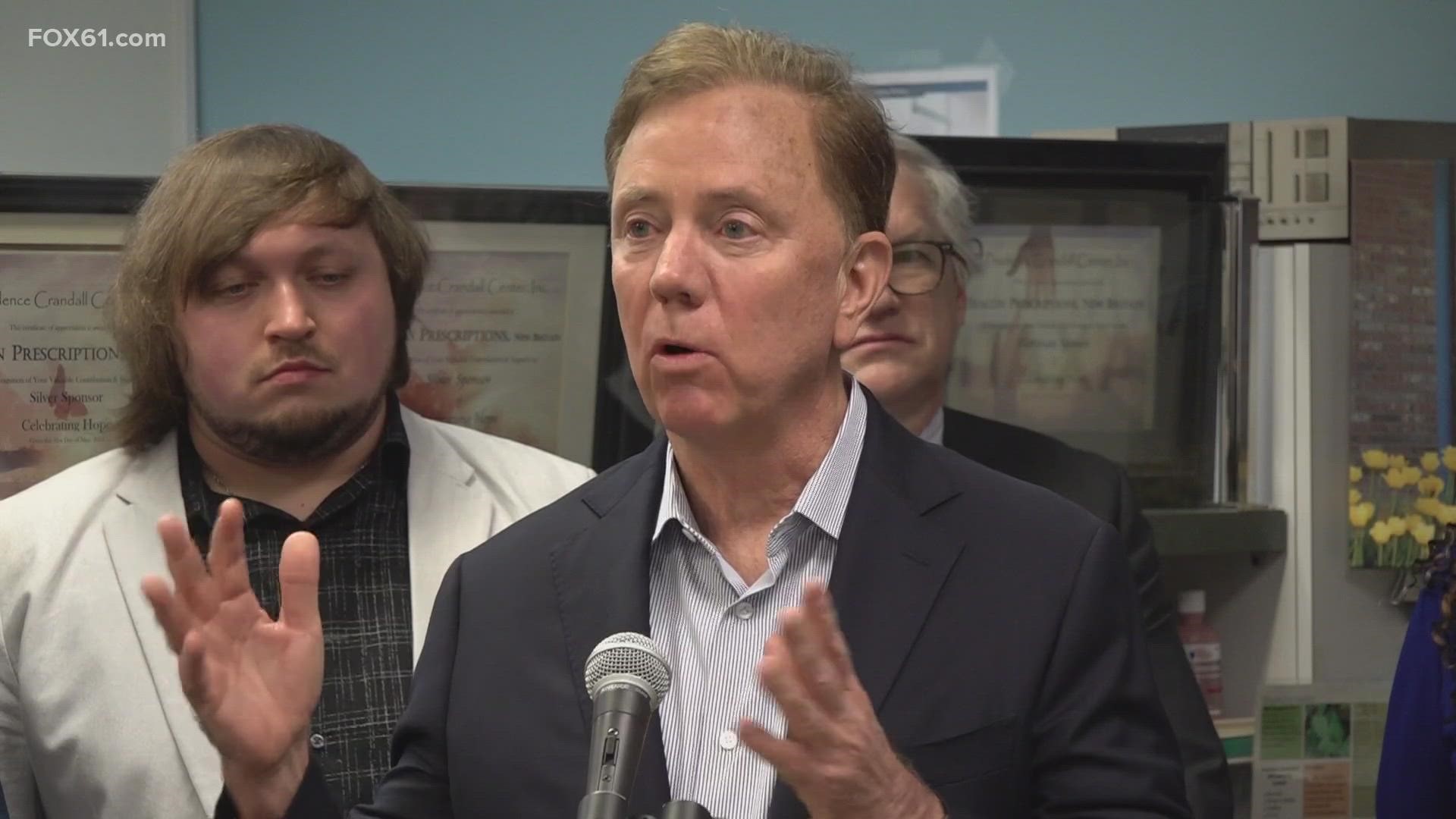HARTFORD, Conn — Gov. Ned Lamont announced legislation Tuesday to reduce healthcare costs for Connecticut residents.
“Gallup recently reported that record-high numbers of Americans are putting off care due to costs,” Lamont said in a statement. “We simply can no longer afford not to take action. These bills I’m proposing tackle this complex problem from multiple angles, and I am calling on all parties – insurers, hospitals, doctors, employers, and consumers – to join with me in working on solutions for the people of Connecticut.”
The proposed legislation emphasizes enhancing competition, eliminating unnecessary charges, reducing rising prices, and increasing affordability for residents and employers.
House Bill 6669 is An Act Promoting Competition in Contracts Between Health Carriers and Health Care Providers and Senate Bill 983 is An Act Limiting Anticompetitive Health Care Practices.
"It's out of control," said patient advocate Susan Millerick at Tuesday's press conference. "It's completely out of control where we have gotten to with health care costs."
These measures are part of Lamont's continued focus on reducing medical costs for Connecticut residents, a goal also shared by legislative leaders.
"When you don't have the money, you don't know when you're going to get the money, then you begin to compromise your health," said Reverend Robyn Anderson, director of the Ministers Health Fellowship Advocacy Coalition. "That should never ever happen."
Dr. Deidre Gifford from the Connecticut Office of Health Strategy added, "The bottom line is that the status quo with health care costs is no longer acceptable."
Lamont is hoping to change that status quo with these legislative proposals.
"Individuals should not have to bear the primary responsibility and bear the brunt of the broken system that we have," said Rep. Cristin Mccarthy Vahey, (D-Bridgeport).
The proposals would outlaw the use of anti-competitive contracting practices, enhance transparency, cap out-of-network charges, use a multistate bulk purchasing program to lower prescription drug costs, and more.
"I think that there are a lot of solutions at the national level that I wish we could see happen, but because of the gridlock in Washington, it's up to states like Connecticut to act and thankfully, the governor is acting," Comptroller Sean Scanlon said.
The state legislature is on board with these concepts, agreeing with Lamont this will take a multi-pronged approach with more than one solution.
"We're in line with the governor on looking at lots of ways to lower health care costs," said Rep. Kerry Wood, co-chair of the Insurance and Real Estate Committee. "The committee is working on a holistic effect with the governor's bills with public health bills with human services bills in order to lower costs."
Ranking member on the committee Sen. Tony Hwang continued, "This is one small part toward that solution. We can’t do nothing."
HB 6669 and SB 983 have both been referred to committees. SB 983 had a public hearing Tuesday in the Insurance and Real Estate committee.
The legislation:
- Eliminates hospital facility fees charged at free-standing offices and clinics.
- Implements stronger regulatory enforcement tools at the Connecticut Office of Health Strategy to assure compliance with certificate of need requirements and related conditions of approval, such as cost controls, patient access, and detailed reporting. This will curb healthcare costs by preventing duplicative services in specific areas while ensuring availability and access to critical services in all parts of the state.
- Commits Connecticut to join a multistate bulk purchasing consortium to negotiate prescription drug discounts that all of the state’s residents will be able to access through a discount card at their pharmacy.
- Requires the Connecticut Office of Health Strategy to annually publish a list of prescription drugs that are experiencing major price spikes to inform consumers and prescribers about which drug prices are going up and by how much.
- Reins in aggressive marketing practices by pharmaceutical representatives to ensure prescribers get clear and accurate information about the drugs they prescribe and generic alternatives. Pharmaceutical representatives will be required to complete training, register with the state, and disclose relevant information about drug costs and efficacy across different races and ethnicity if known.
- Strengthens protections to ensure that discounted prescription drugs purchased through the federal 340B program benefit the low-income consumers and communities the program was designed to help.
- Prevents price gouging when patients get care from a provider who is not in their network. Specifically, the governor is proposing to limit out-of-network costs for inpatient and outpatient hospital services to 100% of the Medicare rate for the same service in the same geographic area.
- Outlaws the use of anti-competitive contracting practices that have been used by health systems to impede competition and increase prices. This will provide health insurers with additional bargaining power to make it easier to negotiate affordable prices for consumers.
Emma Wulfhorst is a political reporter for FOX61 News. She can be reached at ewulfhorst@fox61.com. Follow her on Facebook, Twitter and Instagram.
---
Have a story idea or something on your mind you want to share? We want to hear from you! Email us at newstips@fox61.com
----
HERE ARE MORE WAYS TO GET FOX61 NEWS
Download the FOX61 News APP
iTunes: Click here to download
Google Play: Click here to download
Stream Live on ROKU: Add the channel from the ROKU store or by searching FOX61.
Steam Live on FIRE TV: Search ‘FOX61’ and click ‘Get’ to download.

